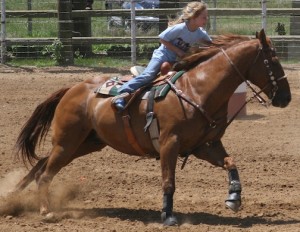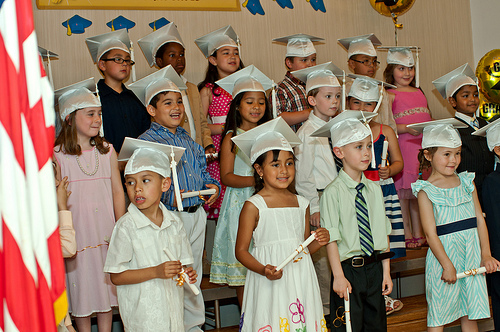I’m a fan of collaboration and cooperation. I’m also not crazy about our culture’s growing aversion to competition for kids. When nobody loses nobody wins, either.
[Tweet “Our growing aversion to competition for kids: when nobody loses nobody wins, either.”]
Healthy competition is a fact of life and can be helpful to a child who is going to grow into a self-sufficient adult: if we want to teach our kids that they can influence their own outcomes, I’m not sure it’s fair to protect them from the opportunity to face challenges. Being part of a contest can drive us to reach our potential, show us what it takes to reach the higher levels and often demonstrate we’re capable of more than we thought.
[Tweet “Being part of a contest can drive us to reach our potential & show us what it takes to reach higher levels.”]
It’s easy to find articles about adults who bring a cutthroat mentality and even violence to youth sports. That has much more to do with power, control and vicarious living than with competition. Competitiveness is an essential life skill, neither inherently positive or negative. That part’s on us.
It’s about striving for excellence, going after something true and noble… fair play and sportsmanship… being the best you can be… commitment, persistence, discipline, vision and focus. The ultimate triumph is in the journey, not just the destination… it’s the striving, not just the winning…
Bob Costas on the making of great Olympians
Striving for the win will not teach kids they’ll always get it if they work hard. They may learn that coaches, referees and even other parents are not always fair or mature. They may discover that some teammates are lazy and selfish — just like in “real life.” While I never enjoyed the conversations sparked by that learning (or seeing my athlete unhappy) I always appreciated the opportunity to talk about the importance of understanding the behavior of others and not take it too personally.
[Tweet “Kids may discover that some teammates can be lazy & selfish: just like in “real life.””]
Sometimes our conversations about deep disappointment would morph into wonderful discussions about situations we can control versus those we cannot change. The earlier we learn we can’t change others, the better.
Some of competition’s greatest lessons take time to uncover:
- the most important opponents we ever face are our own fears and the limitations we place on ourselves
- and those who don’t compete don’t lose; they also can’t win.






